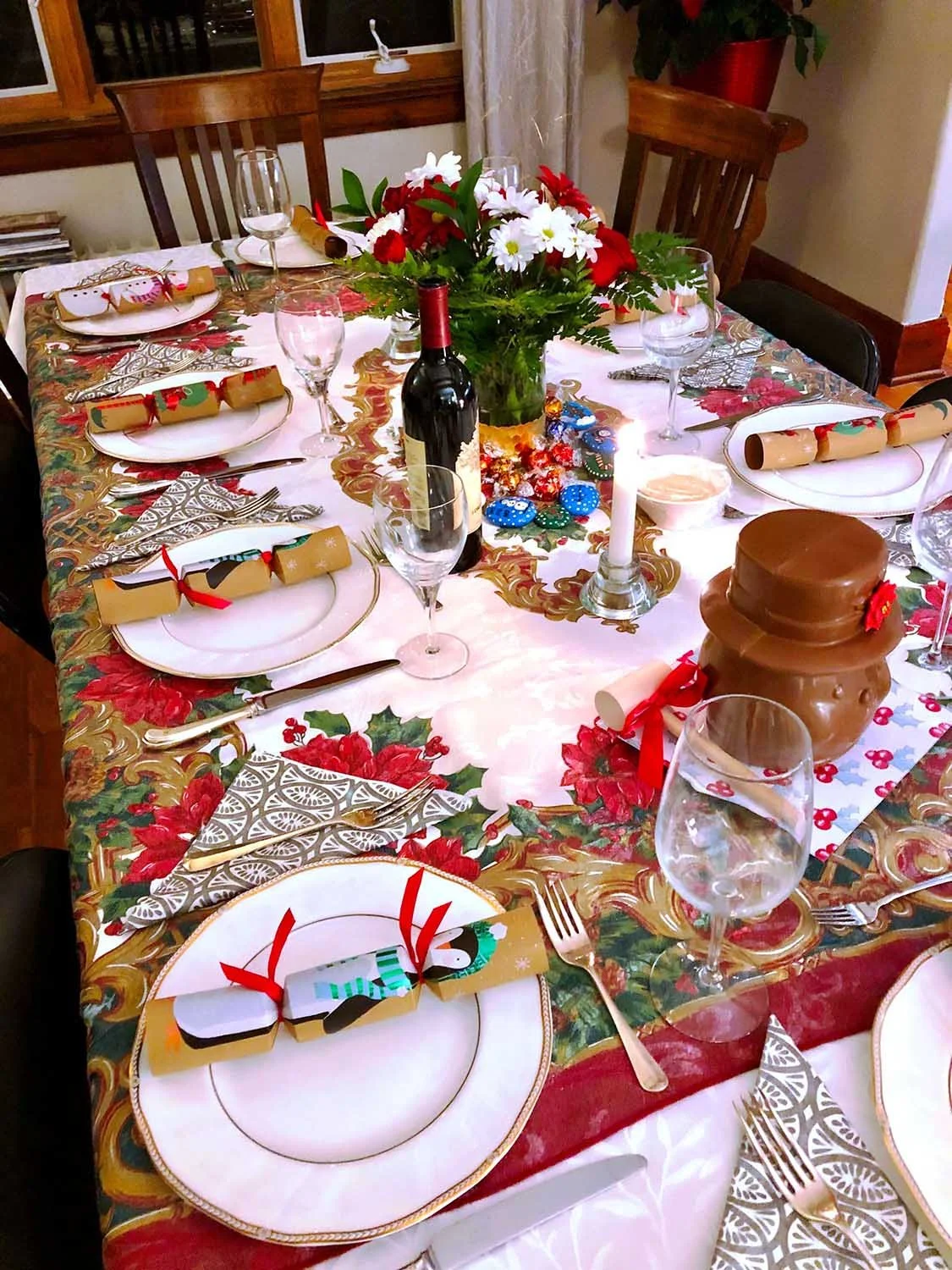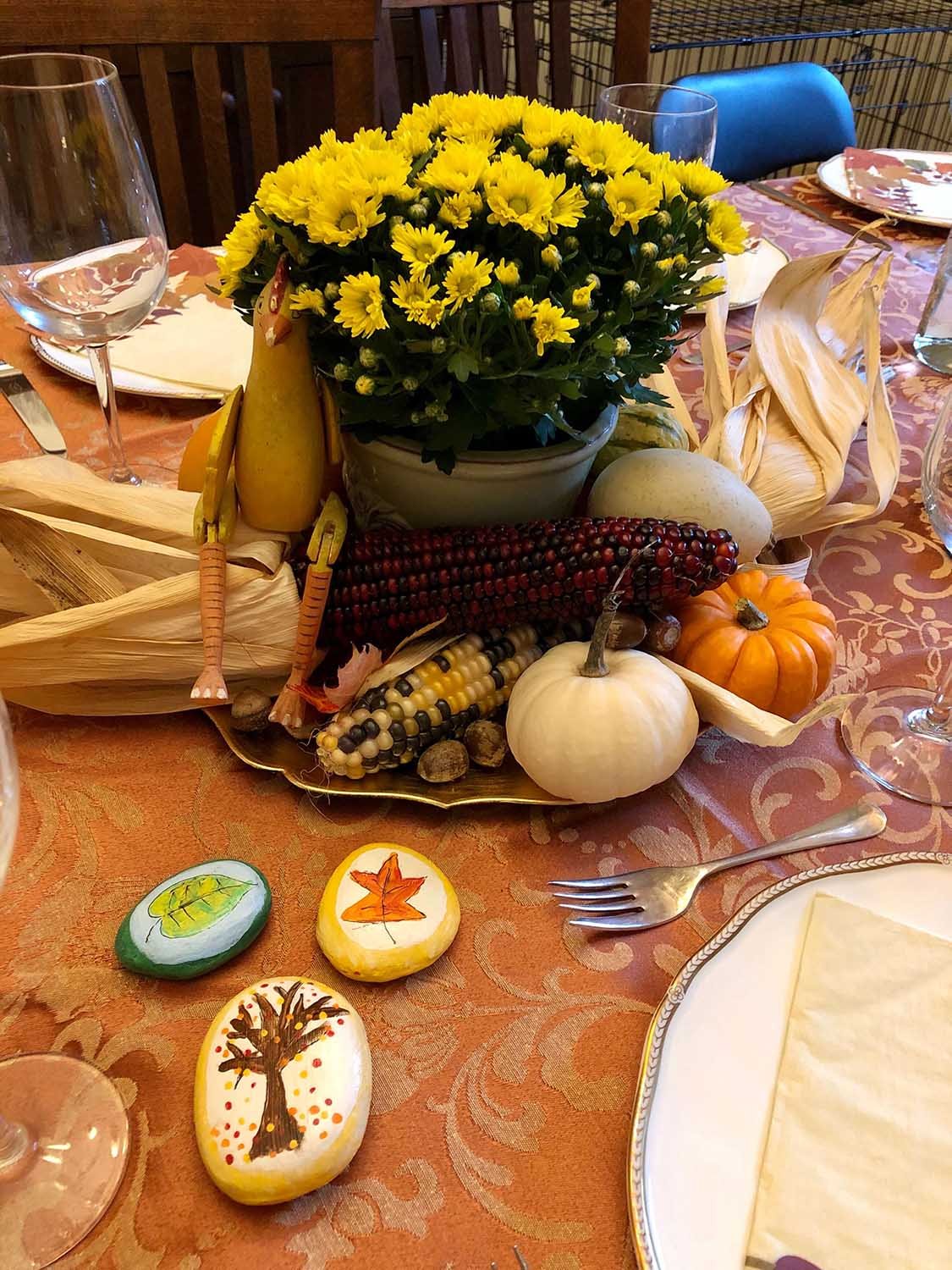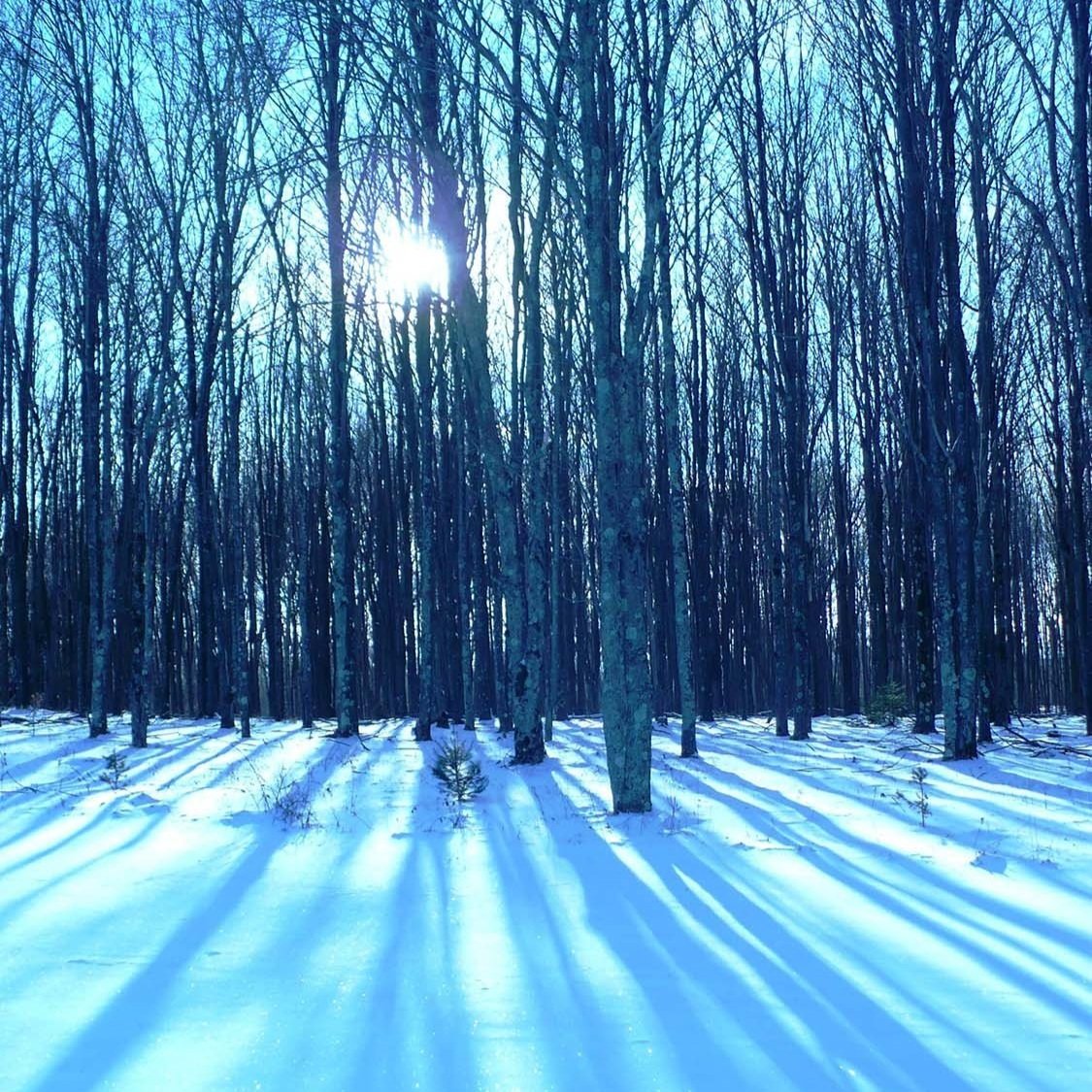Coping With the Holidays
Cope: manage, handle, deal with, survive, hack it, get by, muddle through
Why is it that the longing for our loved ones often becomes more pronounced during this time of year that many refer to as the “holiday season”? Maybe it’s because so many of our traditional cultural and religious celebrations and holidays include the sharing of a meal; and we are painfully reminded of the death of our family or community member by the empty chair at the table. Whether it is the breaking of fast at Yom Kippur, the traditional turkey dinner at Thanksgiving or the celebration of Eid al-Fitr, many holidays and holydays observed in the fall and early winter involve the gathering together of family and friends and the mutual enjoyment of food and drink. These times of celebration can be difficult to navigate as a bereaved person – no matter when your loss (es) happened.
What was once an opportunity for inner reflection and quiet prayerfulness, as well as an outward celebration of laughter and joyfulness, takes on a new meaning for those who have experienced a death in the family, circle or community. Ceremonies and events that once called us into closer connection to our families, friends and creator – filling our hearts with peace, renewal and a sense of belonging – may now provoke anxiety, loneliness, sadness, stress and a profound sense of renewed pain over the loss of our loved one. It’s important to acknowledge the truth of the grief that may be present for some in the midst of these seemingly pleasurable gatherings.
We may find ourselves thinking:
No one can make the chicken soup with matzo balls for Rosh Hashanah like mom did.
It was Dad who always took the family out to cut down the Christmas Tree.
Watching fireworks on Diwali isn’t the same when a beloved friend is missing.
Hearing the sounds of laughter on the streets at Halloween is too much to bear, when you are grieving the loss of your own child.
And caroling has lost its appeal now that your beloved spouse is gone.
From September on – as we begin to experience the change of seasons, from warm, light-filled days to dark and often cold nights – we are faced with a series of holidays, holydays and special occasions that we have to learn to navigate with our new reality of grief and loss.
We are flooded with the memories of past holidays when our loved ones were still here – and it’s hard to imagine getting through these times without them in our midst. Even if we’ve managed to find a way to cope with our day to day lives, the holiday season presents a whole new challenge for integrating this “new normal” or new reality of life without our beloveds.
There is no easy, step-by-step plan for dealing with this challenging time of year, but the following suggestions may be helpful to keep in mind as you travel through this particularly difficult part of your journey, remembering that everyone grieves uniquely and there is no right or wrong way to manage your grief around this time of year.
“I will love the light for it shows me the way.
Yet I will endure the darkness for it shows me the stars.”
- Og Mandino
Choose what is right for you.
The holidays are stressful enough without trying to live up to other people’s expectations. What feels manageable and right for you will change from moment to moment and year to year. Be gentle with yourself and firm with others, and give yourself permission to change your mind.
Plan ahead.
Recognize that the holiday won’t be the same and be prepared for the feelings that come with that. Decide which traditions you want to continue and which new ones you may want to begin. Some people find it helpful to be with family and friends, emphasizing the familiar. Others may not feel ready or able to face old sights and sounds. Maybe getting away is possible or helpful. Others will find new ways to acknowledge the season.
Listen to yourself.
Grief is a holistic experience that affects all parts of our beings – emotional, physical, mental and spiritual/social – and it’s normal to feel stress in all of these areas. It is important to pay attention to the signals from your body, mind, heart and spirit: get enough rest, stop when you need to, keep moving and breathing and find sources of comfort and tenderness. And ask for help if and when you need it.
Try to seek balance.
It’s perfectly okay to take time for yourself – but you may also need to find supportive and non- judgmental friends and family to spend time with as well. Isolation can be healing, but it can also accentuate your loneliness.
Embrace it all.
Allow yourself to remember happy times, and allow yourself to laugh. If memories bring about sadness, then allow yourself to cry. It’s okay to be mad that your holiday isn’t what it used to be. Feelings are temporary and necessary. Whether happiness, sadness, or anger these feelings are a natural expression of our grief and a legacy of love for the person we have lost.
Speak your truth.
People often try to avoid mentioning your loved one’s name in an attempt to avoid hurting you. Be honest and tell them if you want to hear and speak about your beloved family member. Let them know that you want your child, parent, sibling or spouse to be remembered and honoured during this time of year - as always. Tell people what you need and ask for the support that you require to make the best of the difficult moments ahead.
It’s even okay to celebrate.
Some of us do feel moments of joy. In the midst of the sadness, we can remember our loved one with fondness and the feeling is more comforting than painful. We may want to find a tangible way to include them in our familiar rituals of celebration and reflection. By doing something that they loved: a walk in the snow, baking a favourite treat, making a holiday craft, singing a familiar carol – or having a special service, lighting a candle, volunteering or donating to a worthwhile charity in memory of your family member. A moment of joy may be accompanied by a pang of guilt for being happy, because joy comes from the same well as sadness.
Light is a symbol of hope and healing in many faiths, traditions and cultures. Observing Diwali, Chanukah, Yule, Kwanzaa, Winter Solstice or Christmas, or just finding a way to survive what can be a tender time of year requires us to remember that light and dark need each other. There will always be shadows anywhere there is light. And though this time of year includes the shortest and darkest day, it also is a time that the gradual waning of daylight hours is reversed and lighter days begin to increase again.
May you find comfort and peace in both the darkness and the light and may you be surrounded by love as you continue the hard work of learning to live with grief.








